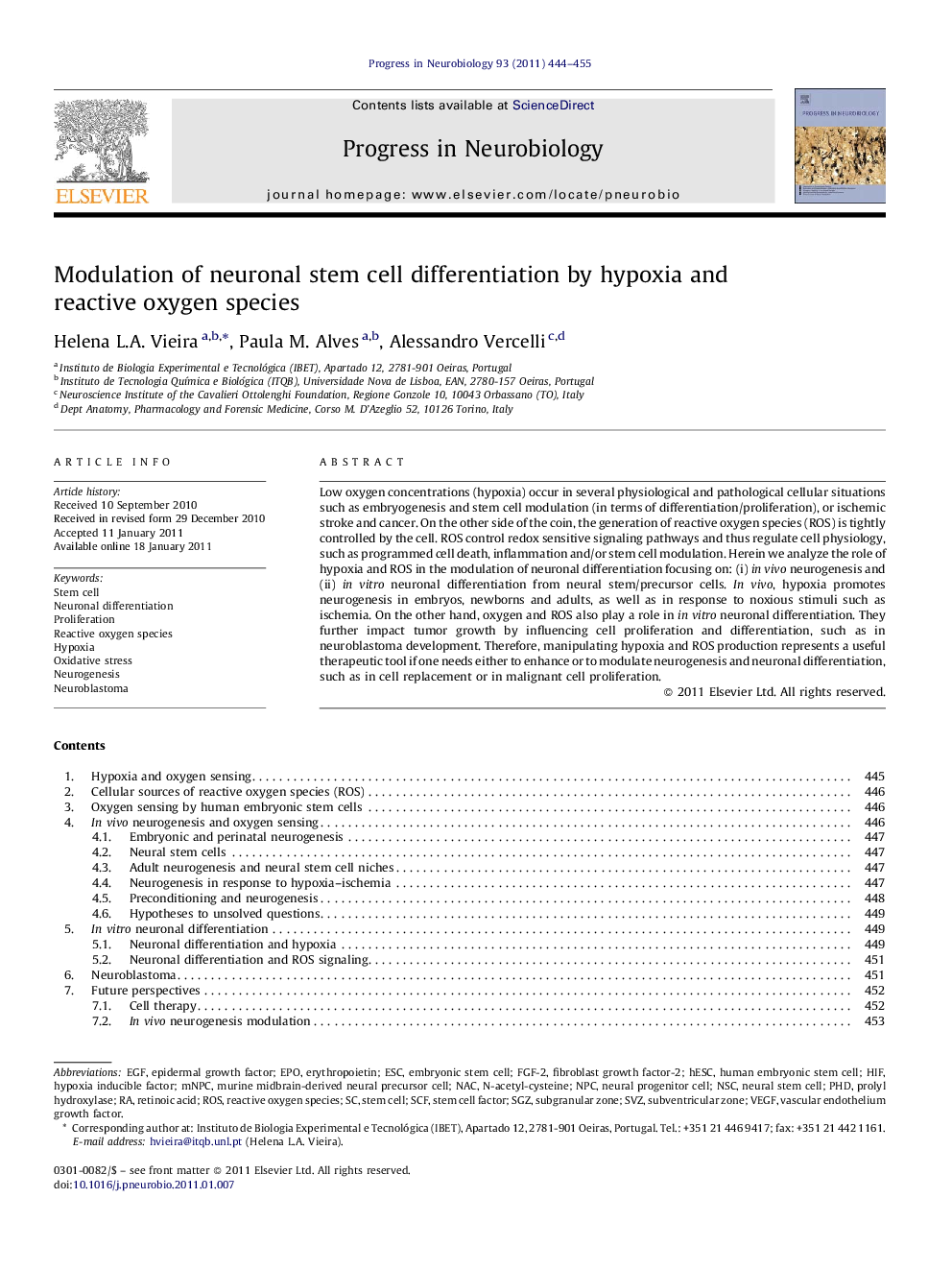| Article ID | Journal | Published Year | Pages | File Type |
|---|---|---|---|---|
| 4353689 | Progress in Neurobiology | 2011 | 12 Pages |
Low oxygen concentrations (hypoxia) occur in several physiological and pathological cellular situations such as embryogenesis and stem cell modulation (in terms of differentiation/proliferation), or ischemic stroke and cancer. On the other side of the coin, the generation of reactive oxygen species (ROS) is tightly controlled by the cell. ROS control redox sensitive signaling pathways and thus regulate cell physiology, such as programmed cell death, inflammation and/or stem cell modulation. Herein we analyze the role of hypoxia and ROS in the modulation of neuronal differentiation focusing on: (i) in vivo neurogenesis and (ii) in vitro neuronal differentiation from neural stem/precursor cells. In vivo, hypoxia promotes neurogenesis in embryos, newborns and adults, as well as in response to noxious stimuli such as ischemia. On the other hand, oxygen and ROS also play a role in in vitro neuronal differentiation. They further impact tumor growth by influencing cell proliferation and differentiation, such as in neuroblastoma development. Therefore, manipulating hypoxia and ROS production represents a useful therapeutic tool if one needs either to enhance or to modulate neurogenesis and neuronal differentiation, such as in cell replacement or in malignant cell proliferation.
Research highlights► Role of oxygen in stem cell modulation, in particular neuronal differentiation. ► Hypoxia involved in neurogenesis in vivo and in vitro. ► Reactive oxygen species (ROS) as signaling molecules implicated in neuronal differentiation process. ► Neuroblastoma development (proliferation and differentiation) in relation to hypoxia and to ROS. ► Signaling programs such as HIF-1 and Nocht during neuronal differentiation and proliferation.
